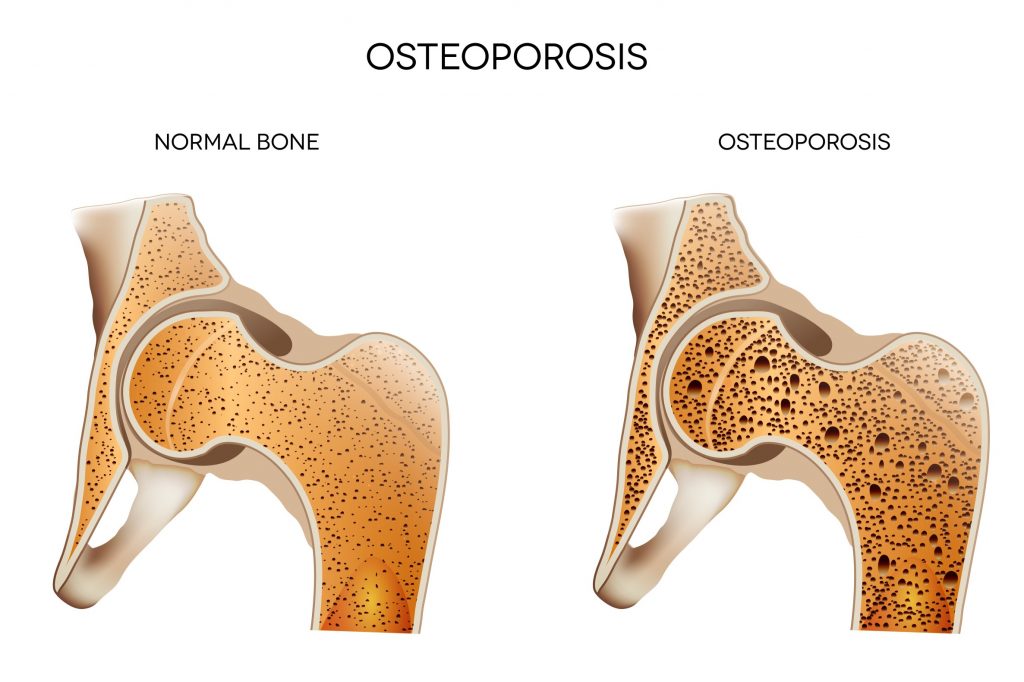How a Rainy Night and Beyoncé Kept DC Metro Running
August 9, 2023
In the captivating world of music and entertainment, artists wield a unique power that extends beyond the boundaries of the stage, leaving an indelible mark on the hearts and minds…

It seems like everywhere you turn, there is a new study touting the benefits of alcohol or the latest food to avoid if you want to keep your bones healthy and strong. So what is the truth? Is alcohol good or bad for your bones?
Alcohol is a popular beverage consumed by millions of people around the world. While it is often associated with socializing and relaxation, alcohol also has significant effects on our health, both positive and negative. In recent years, studies have shown that alcohol can have a profound impact on bone health, including bone density, growth, and strength.
Bone health refers to the overall health and wellness of our bones. It is a crucial aspect of overall health and wellness, as bones play several important roles in our bodies. They provide structure and support, allowing us to stand, move, and perform everyday activities. Additionally, bones protect our internal organs and serve as a store for essential minerals such as calcium and phosphorus.
Bone health is determined by several factors, including bone density, structure, and strength. Bone density is a measure of how much mineral content is in a given volume of bone tissue. A higher bone density indicates stronger bones and a lower risk of osteoporosis and fractures. Bone structure refers to the arrangement of minerals in the bone, which affects its strength and stability. Finally, bone strength is a measure of how much force bones can withstand without breaking or sustaining a fracture.
Maintaining good bone health is essential for preventing osteoporosis and fractures, especially in older adults. A balanced diet rich in calcium and vitamin D, regular exercise, and avoiding excessive alcohol consumption and smoking are all important steps in maintaining good bone health. It is also important to monitor bone health through regular medical check-ups and bone density tests, especially as we age.
Bone health is an essential aspect of overall health and wellness, and taking steps to maintain good bone health can help prevent osteoporosis and fractures in later life.
There has been a lot of debate over the years about whether or not alcohol is good for bone health. Some people swear by the benefits of drinking red wine for strong bones, while others claim that any amount of alcohol can be harmful. So what is the truth?
Well, it is complex. Alcohol does have some positive effects on bone health, but it can also have negative consequences if you drink too much. Let us take a closer look at both of these sides.
On the one hand, alcohol can help stimulate the production of osteoblasts, which are cells that help build bone tissue. This is why moderate alcohol consumption has been linked with a lower risk of osteoporosis and fractures in older adults.
But on the other hand, drinking too much can have serious consequences for your bones. Excessive alcohol consumption can lead to decreased bone density and an increased risk of fractures. Alcohol is one of the leading causes of preventable fractures in adults.

Did you know that there is a link between alcohol and osteoporosis? It is true! In fact, alcohol can damage your bones in a number of ways, which is why it is important to be mindful of how much you drink.
Here are a few of the ways alcohol can impact your bones:
So if you are concerned about your bone health, it is best to avoid drinking alcohol altogether. But if you do choose to drink, do so in moderation and make sure to include plenty of calcium-rich foods in your diet.
The belief that alcohol is bad for your bones is a common misconception. In fact, research has shown that moderate drinking can have a positive effect on bones.
One study, which was published in the journal Osteoporosis International, looked at the drinking habits of more than 1,600 men and women over the age of 50. The study found that those who drank in moderation had greater bone density than those who did not drink at all. And even better, the benefits of moderate drinking appeared to be cumulative, meaning that the more you drink, the greater the benefit to your bones.
So if you are looking for ways to keep your bones healthy, moderate drinking may be a good option for you. Just make sure to keep within the recommended limits, and to drink in moderation to get the most benefit.
When it comes to alcohol and bones, the key is moderation. While moderate alcohol consumption has some positive effects, heavy drinking can be toxic for your bones. The bottom line is that too much drinking can lead to an imbalance in hormone production and calcium absorption, which is essential for good bone health.
Heavy drinking interferes with the way your body absorbs essential vitamins and minerals like calcium, zinc, and vitamin D. This can lead to bone density loss, increasing the risk of fractures and osteoporosis in men and women alike. It has also been shown that heavy alcohol use decreases the production of hormones necessary for normal bone growth such as estrogen and testosterone.
In addition to this, alcoholism affects lifestyle factors important to bone health such as nutrition and physical activity. People who drink heavily tend to have poorer diets and do not get enough exercise, both of which are essential for healthy bones. So if you are a heavy drinker: cut back, eat well-balanced meals rich in calcium, vitamins, and minerals, take supplements as needed, stay physically active and make sure you get plenty of rest!
It is no surprise that alcohol consumption can increase your risk of bone injuries and fractures. However, there are ways to mitigate the damage and strengthen your bones.
Firstly, it is important to ensure that you eat a balanced and healthy diet that contains plenty of fruits and vegetables, as well as foods high in calcium, such as dairy products and dark green leafy vegetables. This will help you to stay strong and keep your bones healthy.
It is also important to do regular physical activity such as walking, running, or even weightlifting, as this can help strengthen your bones by increasing bone density. If you are looking for more specific exercises for strengthening bones, then consider doing yoga or pilates which can target certain areas of your body.
Finally, if you do choose to consume alcohol then make sure it is in moderation; the recommended limit for men is no more than four units per day with at least two alcohol-free days each week, while the limit for women is three units per day with at least two alcohol-free days each week. Sticking to these guidelines will help reduce the damage caused by excess drinking and keep your bones strong.
Are you still confused about the effects of alcohol on your bones? Here are some common questions answered to help you understand more.
Q: Does alcohol affect your bones differently if you are under the age of 25?
A: Generally, alcohol has the same effect on bones regardless of age. However, for young people under 25, the effects can potentially be worse as their bodies are still growing and developing.
Q: Is there a safe amount of alcohol to consume if I want to protect my bones?
A: The general consensus is that moderate drinking has no significant effect on bone health. Studies have found that an occasional glass or two of wine can actually have some health benefits, such as reducing inflammation and oxidation of cells.
Q: Aside from reducing alcohol consumption, what else can I do to maintain strong bones?
A: Getting plenty of exercise and eating a balanced diet that includes calcium-rich foods like dairy products, green leafy vegetables, nuts, and seeds can all help keep your bones healthy. Additionally, losing weight in a healthy manner (such as through diet and exercise) can help reduce stress on your joints and prevent bone loss.
So, is alcohol good or bad for bones? The verdict? While heavy drinking can certainly have a negative impact on bones, light to moderate drinking appears to have some benefits. It is important to keep in mind that these benefits are only seen in older adults and that too much alcohol can override any benefits. So, drink in moderation, and if you have any concerns about your bone health, be sure to speak with your doctor.
Moderate alcohol consumption has been linked to increased bone density, improved bone growth, and stronger bones, which can help protect against osteoporosis and fractures. However, excessive alcohol consumption can cause decreased bone density, stunted bone growth, and weaker bones, which can increase the risk of osteoporosis and fractures. As with any substance, moderation is key when it comes to alcohol and bone health.